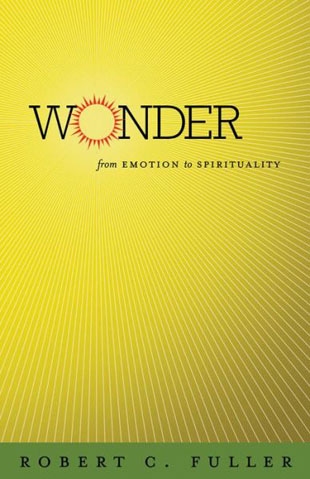Robert C. Fuller is Caterpillar Professor of Religious Studies at Bradley University. In this wide-ranging work, he contends that wonder is not only one of the defining elements of spirituality but a major catalyst in stimulating intellectual, moral, and aesthetic growth over the course of the human life span. The author takes wonder into fresh fields of study with his analysis of its role in evolutionary biology and in human cognitive development. In the first, Charles Darwin is the teacher, and in the second, Martha Nussman is the explorer.
Fuller turns our attention to three "exemplars of wonder" who have given us many ways of putting this powerful emotion to work in our world. "Their lives," he notes, "furnish important clues about how the experience of wonder shapes us in ways that we might become true citizens of the universe."
John Muir (1838-1914), founder of the Sierra Club and an advocate of the preservation of wilderness through a national parks system, was a cultural visionary who had a long love affair with the beauty and the bounty of the natural world. William James (1842-1910) was a philosopher whose three experiences of the emotion of wonder made him a believer in its religious powers. And, last but not least, Rachel Carson (1907-1964) was convinced that wonder provides the foundation for a solid and substantive reverence for life.
Fuller also covers other devotees of wonder including Martin Buber, Albert Einstein, Carl Rogers, Howard Gardner, Henri Poincare, and others. He closes with some cogent observations on wonder and the religious sensibility. He salutes this emotion for its capacity to take seriously the unseen order of life and to give our bodily existence an infusion of zest and resiliency. Fuller concludes: "Although you can surely go through life without a developed sense of wonder, it is equally true that a life shaped by wonder is attuned to the widest possible world of personal fulfillment ."
